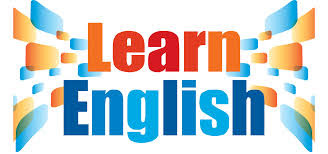Some and any
Some and any are used to state the quantity, amount of something.a) countable object + plural verb(positive)
1) There are some lemons on the table.2) There are some CDs on the desk.
3) There are some eggs on the table.
b) countable object + plural verb(Negative)
1) There are not ant cigarettes on the table.2) There are not any biscuits.
3) There are not any magazines.
c) countable object + plural verb(Question)
1) Are there any glasses on the table?2) Are there any books on the table?
3) Are there any pens?
d) uncountable object + singular verb(positive)
1) There is some sugar on the table.2) There is some flour on the table.
3) There is some water on the table.
e) uncountable object + singular verb(Negative)
1) There is not any bread on the table.2) There is not any wine on the table.
3) There is not any chocolate on the table.
f) uncountable object + singular verb(Question)
1) Is there any money on the table?2) Is there any pasta?
3) Is there any bear?
This, that, these and those
a) this
one object close to you.1) This is my pen.
2) This is my book.
b) that
one object distant from you.1) That is my book.
2) That is my table.
c) these
plural objects close to you.1) These are my pens.
2) These are my books.
d) those
plural objects far from you.1) Those are my pens.
2) Those are my books.
Simple Present tense
The simple present tense in English is used to describe an action that is regular.1) I work at home.
2) You work every day.
3) He works at night.
4) She works in an office.
5) It works all week.
6) We work together.
7) You work part time.
8) They work all month.
Frequency adverb
We use some adverbs to describe how frequently we do an activity.Frequency Adverb of Frequency Example Sentence
100% always I always go to bed before 11 pm.
90% usually I usually have cereal for breakfast.
80% normally / generally I normally go to the gym.
70% often* / frequently I often surf the internet.
50% sometimes I sometimes forget my wife's birthday.
30% occasionally I occasionally eat junk food.
5% hardly/ rarely I hardly ever drink alcohol.
0% never I never swim in the sea.
Enough
Something is using for sufficient.1) There is not enough water in this glass.
2) There is not enough money for travel.
Too
Something more than sufficient.1) There is too much water in the glass.
2) There is too much money for the bucket.
3) There are too many coins.
4) The ticket is too expensive.
5) The glass is too full.
So
So also use for Something more than sufficient.1) There is so much water in the glass.
2) There is so much money for the bucket.
3) There are so many coins.
4) The ticket is so expensive.
5) The glass is so full.
Simple Present tense (negative)
1) I do not teach on Sunday.2) You do not know my parents.
3) Jack does not play tennis well.
4) Alice does not know have a boyfriend.
5) We do not work part time.
6) You do not know tom aunt.
7) Alice and Sharon do not live together.
Simple Present tense (question)
1) When do you arrive?2) What do you do at work?
3) Who does he work with?
4) How much does it cost?
5) Where do you live?
6) How do they speak English?

No comments:
Post a Comment